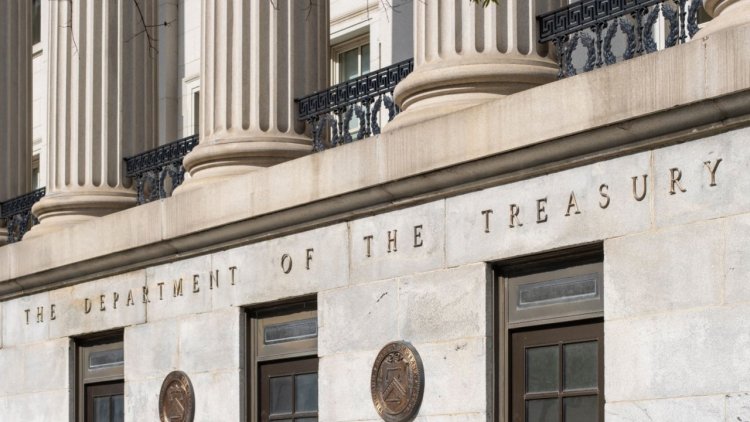Biden's New Crypto Rule Shakes Entire Industry – Full IRS Oversight Incoming
Discover how Biden's new IRS crypto rule impacts the industry, with sweeping reporting requirements and looming legal battles. Learn about future policy changes under Trump.

Biden's New Crypto Rule Shakes Entire Industry – Full IRS Oversight Incoming
The U.S. Treasury’s sweeping IRS rule forces crypto platforms to track and report all transactions, igniting fierce industry backlash and looming legal battles over its survival.
US Treasury Expands IRS Reach – Crypto Industry Faces Full Reporting Rule
The U.S. Department of the Treasury and the Internal Revenue Service (IRS) have finalized sweeping new regulations for brokers facilitating digital asset transactions, scheduled for publication in the Federal Register on Dec. 30, 2024. The new rule mandates brokers, including certain decentralized finance (DeFi) platforms, to track and report user activity, covering sales of all digital assets, including non-fungible tokens (NFTs) and stablecoins.
Key Provisions:
-
Scope: Brokers, trading front-end services, custodial wallet providers, and decentralized exchanges are now classified as brokers.
-
Requirements: Platforms facilitating transactions must verify identities, report gross proceeds, and issue Form 1099-DA for digital asset transactions.
-
Duration: Brokers must maintain records for seven years.
Bill Hughes, Senior Counsel at Consensys, explained on social media platform X:
“Treasury/IRS has finalized their DeFi broker tax reporting rule. Trading front ends would have to track and report on user activity—both US persons and non-US persons—starting in 2027. And it applies to the sale of every single digital asset—including NFTs and even stablecoins (all cost, no benefit from a revenue perspective).”
Legal Challenges and Industry Backlash
Critics warn that the rule exceeds the Treasury’s authority and violates the Administrative Procedure Act. Legal challenges are expected to follow swiftly. Bill Hughes noted:
“First, a lawsuit will be filed claiming that the rule is beyond the authority of Treasury. Later, the rule will likely come under Congressional review where it can be disapproved of.”
Caitlin Long, founder of Custodia Bank, criticized the Biden administration’s move, calling it overly broad:
“Evisceration of the new Biden/Warren broker rule… it’s written so broadly that it applies to ISPs & web browsers, which face new IRS reporting requirements.”
Future Political Implications
President-elect Donald Trump, set to take office on Jan. 20, 2025, has pledged to reverse what he calls the “anti-crypto crusade” of the Biden era. His administration’s proposed initiatives include:
-
Establishing the U.S. as the “crypto capital of the planet.”
-
Creating a national bitcoin reserve.
-
Ensuring banking access for crypto firms.
-
Forming a crypto advisory council.
Critics, including lawyer Jake Chervinsky, view the IRS rule as a final attempt to curtail the crypto industry before a likely policy shift under Trump’s leadership:
“This unlawful rule is the dying gasp of the anti-crypto army on its way out of power. It must be struck down, either by the courts or the incoming administration.”
The finalized rule aims to align tax reporting in the digital asset space with traditional securities but faces intense scrutiny and resistance. As the industry braces for significant changes, the legal and political battles ahead will likely shape the future of cryptocurrency regulation in the United States.
What's Your Reaction?















